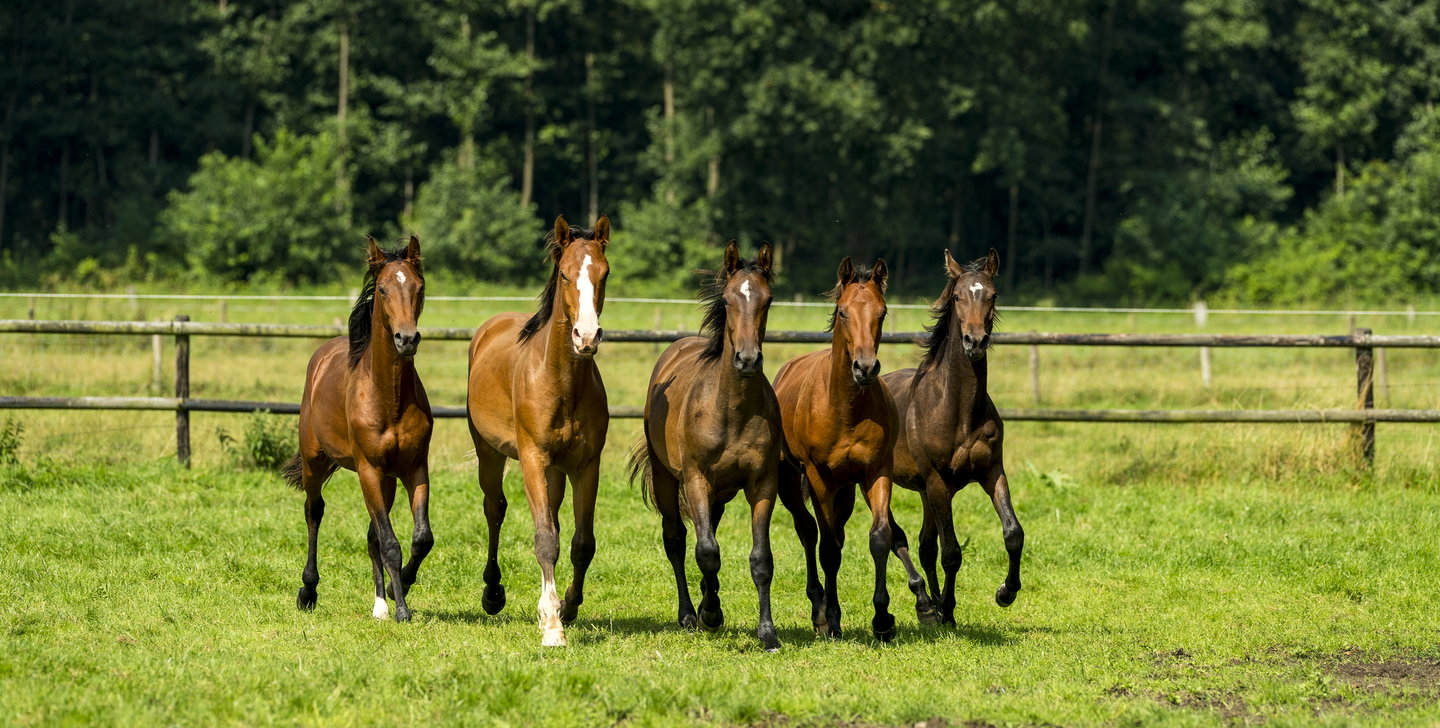
5 months
Weaning
The length of time a foal will be nursed by its mum varies. It is wise to wait with weaning until your foal is at least 4 months old, but waiting until your foal is 5 to 6 months old would be better. The best time to wean your foal often depends on when it can be coupled with another foal of the same age.


Seperating
Start separating mare and foal regularly before weaning, by placing the mare in another box for a bit or by taking her out for the day. Gradually increase their time apart. Take your time to do this gradually, for example 10 minutes on the first day, 20 minutes on the second day, etc. After a certain time, let your foal and mare spend the night apart.
If this is not feasible and you choose to wean from one day to the next, then it will be better for your mare and foal to have as little contact as possible, and they should be out of earshot from each other too. It will be very stressful for your foal to be able to hear its mum but not see her. And the mare may drip milk when she hears her foal neighing.
It is also nice for your foal to share a box with another foal straight away, so they can support each other.

Make sure both mare and foal are in good health before weaning. Your foal must be able to feed itself roughage and concentrate, so start with this early on. Your foal must also be able to drink from a trough.
Milk Production
It is wise to give your mare a little less concentrate and less protein-rich grass during the last week before weaning. At this stage of your foal's life, its mother's milk production largely depends on her nutrition. The less your mare eats, the less milk she will produce. After about a month, the udder will dry up off its own accord.
You may come across advice to cool the mare's udder down after weaning but this is not necessary. Make sure your mare can get enough exercise. Do keep a close watch on the udder though. If the two udder halves are uneven or your mare has an elevated temperature, then contact your veterinarian.

Vaccination
Get your foal vaccinated against influenza and tetanus at the age of five to six months old. Your foal will then need a second jab four to six weeks later. Sometimes, the second jab is skipped, but it is important for the foal so it can build a strong immune system. A third jab follows another six months later.

6 months

On its own feet
For most foals, this is the time it will need to stand on its own four feet and leave its mum. Horses are true herd animals and not good on their own. Make sure your foal gets a mate after it has been separated from its mum. This may prevent panic and accidents.

Extra vaccinations
Consider whether you would like to have your foal vaccinated against EVA and the equine herpes virus. This may be relevant, particularly if your foal enters the rearing stage at a larger stud farm. EVA often passes virtually unnoticeably but is highly contagious. However, it can make a foal extremely poorly.
Interesting Fact!
Did you know that a six-month-old foal grazes the same amount of time as its mum?
